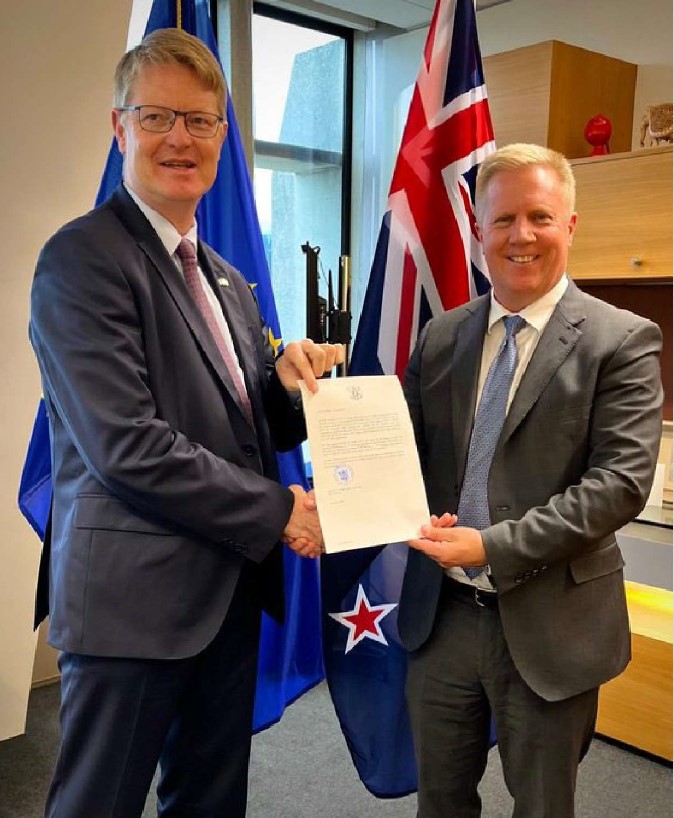
On 1 May 2024, the New Zealand-European Union Free Trade Agreement entered into force, representing the culmination of years of effort by successive New Zealand Governments.
The NZ-EU FTA has the potential to grow New Zealand’s real GDP by up to NZD$1.4 billion per year, and New Zealand exports to the EU by up to NZD$1.8 billion per year, by 2035. The FTA levels the playing field for New Zealand exporters, allowing them to better compete in the lucrative EU market, where many of our major competitors already enjoy preferential access.
Under the FTA, New Zealand’s conditions of access will be significantly improved, with 91% of New Zealand’s current goods trade to the EU able to enter duty-free from entry into force, generating an estimated annual tariff savings exceeding NZD$100 million (the highest immediate tariff savings of any New Zealand FTA).
Although access will not be fully liberalised for red meat and dairy products, quotas made available under the FTA create new market access opportunities and represent an improvement on the status quo for New Zealand businesses exporting into the EU.
The NZ-EU FTA also includes a range of commitments to encourage increased trade in services, facilitate investment flows, reduce barriers to trade and improve access to government procurement contracts across the EU, enhance cooperation between regulatory agencies, support trade and sustainability and trade and labour objectives, and facilitate the movement of goods and professionals across borders. The NZ-EU FTA, particularly the Māori Trade and Economic Chapter, will provide a valuable new platform to advance Māori trade and economic aspirations and interests in the EU.
Conclusion of an FTA with the EU is also valuable strategically, adding a vital piece of architecture to our relationship with a close, likeminded partner. The NZ-EU FTA will reinforce our connections to Europe.
The successful outcomes achieved in the NZ-EU FTA are testament to the strong cooperation between several New Zealand government agencies, with much of the negotiations and stakeholder engagement taking place virtually due to the COVID-19 pandemic. Despite these challenges, negotiators delivered a high-quality FTA delivers significant benefits to New Zealand businesses and a range of other stakeholders.

